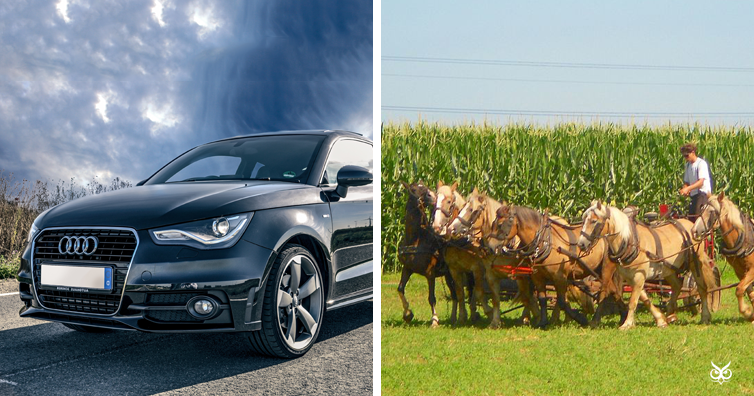Last time we talked about car engines, we answered an indeed very interesting question: Is Horsepower Really The Power Of A Horse?. Well, even though that explained a lot, it left unanswered one very important question: why horsepower? Why was that unit of measurement originally used to indicate the power of an engine?
Well, because all of us useless info junkies love to know these kind of details, here’s how it goes.
In the early 1780s, Scottish engineer James Watt, developed an advanced and really innovative steam engine that he intended to put into a wide circulation. But during those times, when travelling and heavy works were still being carried out by horses, the general public was still skeptical regarding the capabilities of this new steam engine. So what did he do? He decided to prove that his invention was superior in advertise it in terms that people could easily understand. (the article continues after the ad)
To do so, he used horsepower; the power produced by an average horse. With various calculations, he initially estimated that a horse can produce 33,000 joules (746 watts) per minute. That was hedged with 1 horsepower and was used as an advertising slogan to promote the fact that his new engine could produce X times more power than a horse. A kind of an apples-to-oranges comparison but it worked.
With this promotional statement, Watt managed to attract interest, increase his sales and make a decisive contribution to the industrial revolution. And this is why engine power is, even today, measured in horsepower.
If you like what you read, then you will definitely love this one: Is Horsepower Really The Power Of A Horse?
Photo: gessinger / Pixabay, Creative Commons
Photoshop: I’m A Useless Info Junkie
Sources: Why Is Engine Power Measured In ‘Horsepower’? | Horsepower



